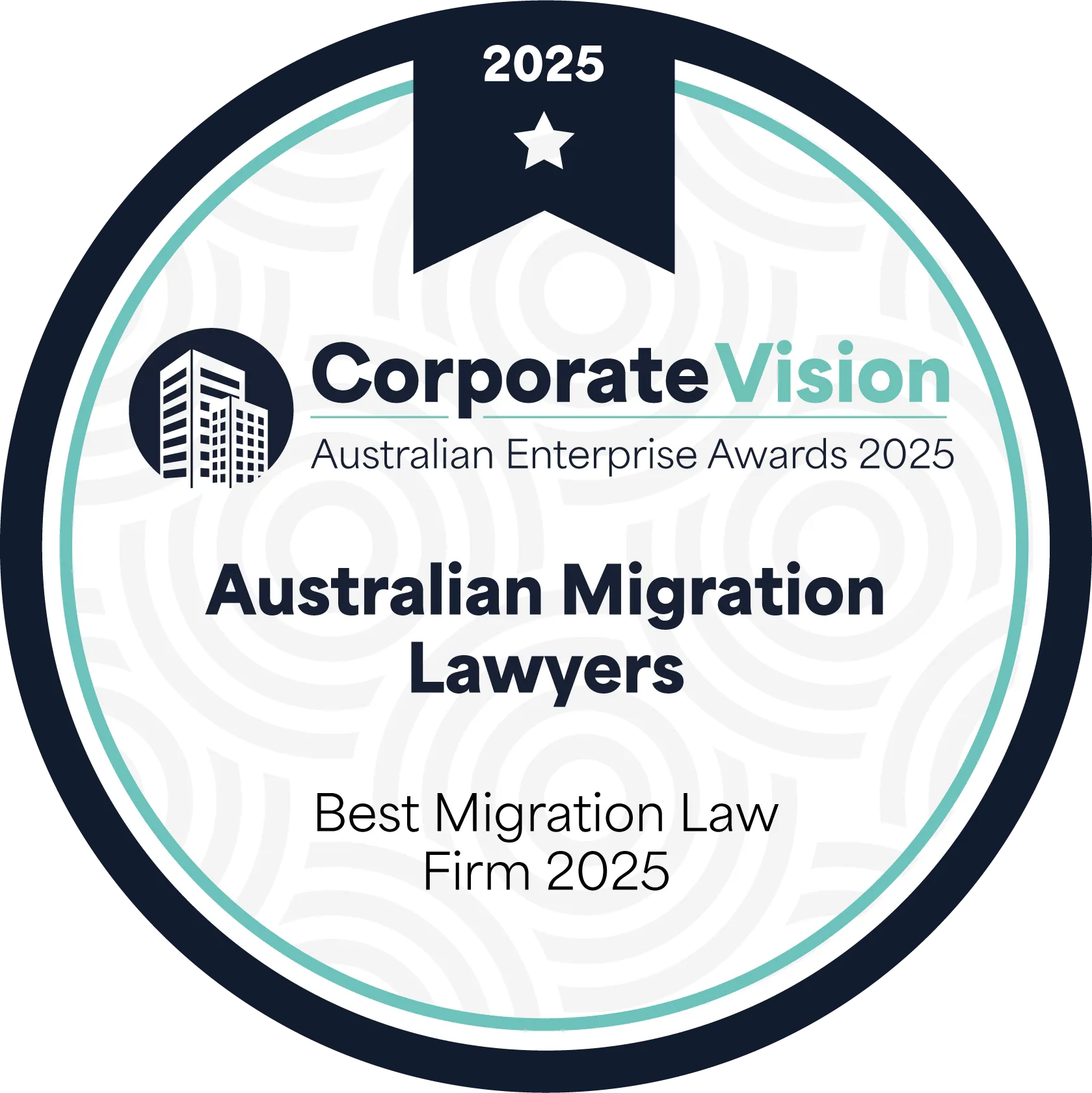Australia's largest independent migration law firm. Open 7 days! Book here.
Need help? We are available 7 days a week.

.webp)

Winner of Most Trusted Australian Migration Law Firm 2023-2026

Ranked 1st for migration law in 2023, 2024 & 2025

Ranked in the top migration lawyers 2023, 2024 & 2025

Ranked the best migration law firm 2024 & 2025
%20(1).webp)
Australia’s growing demand for skilled workers makes it an attractive destination for talented individuals worldwide. For many, obtaining an employer-sponsored visa through Australian Migration Lawyers is one of the most direct and reliable pathways to working in Australia and building a secure future. If you are seeking employment and hope to migrate, understanding these visa options is crucial for making informed decisions and maximising your chances of success. Whether you are looking for temporary work or permanent residency, employer sponsorship can open doors to valuable opportunities. Australian Migration Lawyers are here to help you navigate this complex process, offering comprehensive visa application assistance.
Employer-sponsored visas exist to help Australian businesses fill skill gaps they cannot meet locally. These visas allow approved employers to sponsor suitably qualified overseas workers for specific roles. Two of the main pathways are the Skills in Demand (SID) visa (subclass 482) and the Employer Nomination Scheme (ENS) visa (subclass 186), both of which enable skilled migration and contribute to the Australian workforce. These visas help maintain a strong labour market while giving skilled workers a chance to live and work in Australia. Australian Migration Lawyers understand the intricacies of these visas and can provide expert guidance to visa applicants.
The Australian Government is replacing the Temporary Skill Shortage (TSS) visa (subclass 482) with the new Skills in Demand (SID) visa. This new visa introduces a three-pathway model designed to streamline the process for skilled workers.
The SID visa is structured into three distinct pathways, moving away from the previous TSS model:
Navigating the transition to the new Skills in Demand visa requires a clear understanding of which pathway applies to your circumstances. The team at Australian Migration Lawyers can provide a comprehensive assessment of your eligibility under the new system and offer expert assistance with your visa application to maximise your prospects of success.
The ENS visa (subclass 186) offers a pathway to permanent residency in Australia for skilled workers nominated by an Australian employer. This permanent skilled visa has three streams:
ENS visa requirements include relevant skills, qualifications, English proficiency, and meeting age and health criteria. Consulting with Australian Migration Lawyers can clarify your eligibility for the ENS visa and provide more complete details on the application process.
No matter which visa you apply for, certain requirements are standard. These include:
Understanding these skilled worker requirements will help you prepare a stronger application and avoid delays. Australian Migration Lawyers can provide comprehensive advice on all general eligibility criteria for these visa types.
Approved sponsors have strict obligations. Employers must prove they have a genuine need for the overseas worker, ensure the role cannot be filled locally, and meet employer sponsorship obligations, including training Australian staff. Becoming an approved sponsor in Australia involves demonstrating a commitment to fair employment and compliance with Australian workplace laws. Australian Migration Lawyers can assist Australian businesses in navigating their sponsorship responsibilities, from the initial nomination application to ensuring compliance.
Sponsorship is most common in industries experiencing persistent skill shortages. These include healthcare, IT, engineering, construction, mining, education, and trades. Roles such as nurses, software developers, engineers, chefs, and electricians frequently appear on the sponsored jobs list and relevant occupation lists. Researching high demand occupations in Australia can help you target realistic opportunities. Australian Migration Lawyers can help you identify high-demand occupations relevant to your skills and provide further information on the labour market.
To find sponsored jobs in Australia, use reputable job platforms like SEEK, Indeed, and LinkedIn. Focus your search on employers with a track record of sponsoring overseas workers. Networking through professional associations and industry events can also uncover hidden opportunities. Tailor your applications to highlight your eligibility for a sponsorship visa and check that any offer aligns with genuine migration requirements to avoid scams. Australian Migration Lawyers can offer strategic advice on securing visa sponsorship jobs and preparing a complete application for a visa in Australia.
Employer-sponsored visas involve detailed rules and paperwork. Our experienced migration lawyers can assess your eligibility, guide you through choosing the right visa pathway, help with skills assessments, prepare your application, and liaise with employers to ensure compliance. If you want personalised advice and help securing your future, contact Australian Migration Lawyers today for clear, professional visa application assistance. Our Australian Migration Lawyers are committed to maximising your prospects for a successful visa outcome and a smooth visa grant process.

We have created comprehensive visa guides that outline the ins and outs of visa applications. Get yours today.